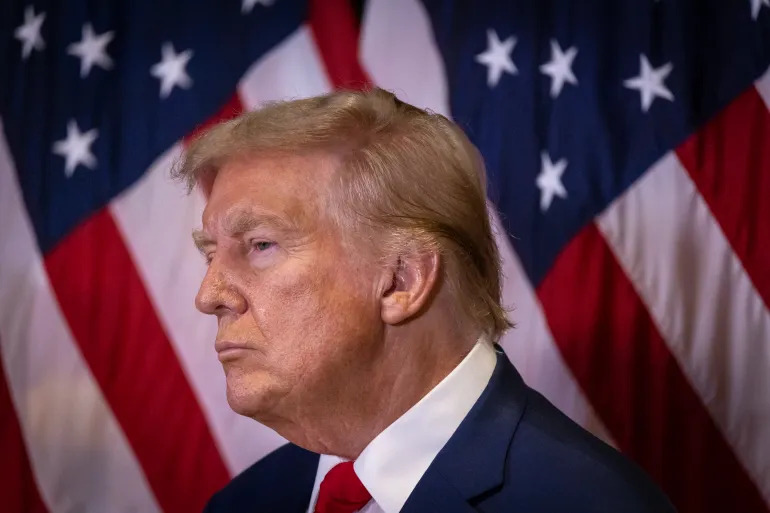Former President Donald Trump has suggested that the Department of Justice (DOJ) adheres to a “60-day rule,” which he claims prevents it from taking legal actions against political candidates in the lead-up to U.S. elections. Trump’s assertion comes as he faces two federal indictments: one in Washington, D.C., for attempting to overturn the 2020 election results, and another in Florida for mishandling classified documents.
What Did Trump Claim?
Trump referenced this “60-day rule” while reacting to a recent indictment update in the federal election case. On Truth Social, he stated:
“It is DOJ policy that the Department of Justice should not take any action that will influence an election within 60 days of that election – but they just have taken such action.”
This criticism was echoed by others, including Judge Aileen Cannon, who questioned whether holding a trial before the election would breach this supposed rule.
The Legal Rebuttal
However, legal experts quickly rejected Trump’s claim. Jay Bratt, a federal prosecutor handling the Florida case, clarified that since Trump had already been charged, no DOJ guideline had been violated. Moreover, there is no written DOJ policy prohibiting actions within 60 days of an election.
What is the “60-Day Rule”?
The idea Trump referenced is a vague, unwritten guideline that some DOJ officials have followed over the years. A 2018 report by the DOJ’s inspector general noted that there is no explicit policy barring investigative steps within a specific time before elections. Instead, officials have loosely adhered to an unwritten norm of avoiding overt prosecutorial actions close to an election—typically within 60 to 90 days.
This practice came under scrutiny when former FBI director James Comey reopened the investigation into Hillary Clinton’s emails 11 days before the 2016 election. Comey later defended his actions, highlighting the importance of avoiding moves that could sway elections.
Does Trump Have Any Legal Recourse?
No, because the guideline is not a legally binding rule, but rather an informal practice. Additionally, legal scholars argue that Trump cannot claim unfair treatment since the guideline would only apply to major new actions, such as fresh indictments, which is not the case here.
Since Trump’s indictments were issued long before the 60-day window, this guideline does not affect the current federal proceedings in Washington, D.C., and Florida. Furthermore, it does not apply to Trump’s upcoming state-level cases in New York and Georgia, as the guideline pertains strictly to federal matters.
Additionally, even if Trump’s interpretation of the rule were correct, Special Counsel Jack Smith’s updated indictment was filed on August 27, 70 days ahead of the November 5 election, which falls outside the timeframe Trump cited.
In summary, Trump’s claim about the “60-day rule” has been debunked by legal experts, as no formal DOJ policy prevents ongoing legal actions against him from proceeding.


